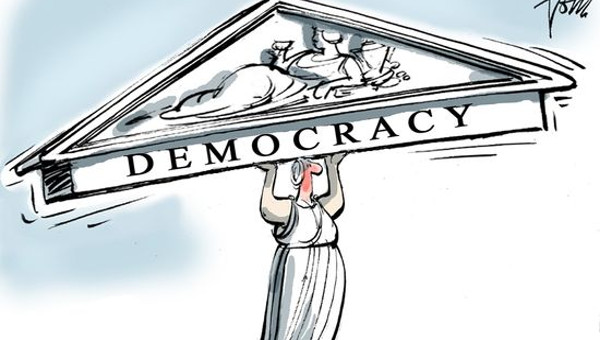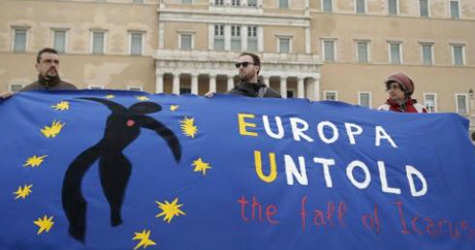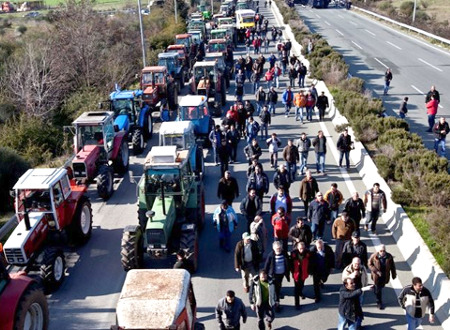The Greek Crisis: Syriza vs Europe
On January 26, Greeks elected Syriza, the Coalition of the Radical Left, to form government in their country that has been ravaged by a toxic mix of economic depression and … Watch video »
On January 26, Greeks elected Syriza, the Coalition of the Radical Left, to form government in their country that has been ravaged by a toxic mix of economic depression and mass unemployment. For six years Greece, along with other countries of the European periphery (Spain, Portugal, Ireland), has been subjected to painful austerity by European institutions and the IMF. While private creditors have been bailed out, Greeks and the people of the European periphery have been made to suffer. Their governments have acquiesced in slashing social spending, cutting pensions and wages and privatizing valuable state assets, often for a pittance.
If countries were entered into a sadistic austerity contest, Greece would sadly come out tops. Today, however, Greece has the first anti-austerity government since the Europe-wide economic crisis began in 2008. Syriza’s election brought hope not only to Greece but all those opposed to austerity across Europe — indeed, around the world. Whether the promises of a radical break with austerity will come to fruition will depend on the continued mobilization of Greeks themselves, on developments within creditor nations and European institutions, but also, crucially, on international solidarity.
Moderated by Michal Rozworski. Presentations by:
- Ingo Schmidt Academic Coordinator of Labour Studies at Athabasca University
- Peter Prontzos social activist, teaches political science at Langara University
- Natassa Romanou climate scientist at Columbia University, Syriza member and founding member of Syriza-NY
Sponsored by the SFU Institute for the Humanities, SFU International Studies and the Vancouver Ecosocialist Group, also media sponsor Ricochet. Recorded by dgSolidarity in Vancouver, 10 April 2015.





